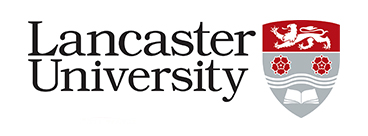Michael’s Essay
I’ve been alone for three years now.
My freshman year, my mother had to take a job as a live-in caregiver so she could cover rent and bills after my uncle got married and left. At first, I was thrilled—I imagined endless hours with the PS4, no one to tell me when to sleep or do my homework. It felt like freedom. But freedom, I quickly learned, can be a lonely place.
To make up for never being home, my mother called me three times a day. The first was at 6:00 a.m.—her way of making sure I never missed the bus. The next was at 4:00 p.m., when we’d go over everything that happened at school. The last was the one that made me miss her most. We called it the “multi-purpose” call, always over an hour long—sometimes life advice, sometimes lessons in laundry or how to cook, but always ending with her wishing she could be home. She told me I was her pride and joy, but I always thought of myself as her hope—for a life less hard.
That last call stayed with me. Around friends and their parents, I’d lower my head and try to smile, even as their laughter reminded me of what I was missing. Independence for me wasn’t what most people imagine—it was silence, isolation, and learning how to be my own company. The hardest part wasn’t loneliness—it was knowing my mother missed me just as much, and carried her own guilt.
For three years, I’ve walked into a dark, empty house after school, gone to bed hoping to hear another voice, woken up to do it all again. I’ve nearly gotten used to it. But I don’t want my story to end this way. My mother sacrificed years so I could have more choices. All she’s ever asked is that I do well in school. Sometimes I want to give up, but I keep going—because her effort deserves more than my fatigue. If one day it’s my turn to care for her, she’ll never have to be alone.
顾问点评:成长的孤独,奋斗的温度
1. 以细节开篇,直切情感张力
Michael并没有用“苦情牌”开场,而是用一句“我已经独自生活三年了”,立刻勾起读者好奇。他没有急于叙述“多难”,而是从“以为自由很美好”入手,埋下转折伏笔,为后续的“孤独”与“成长”积蓄力量。
2. 用家庭日常串联成长轨迹
文章用母亲“三通电话”的日常,将空间的距离与情感的连结具体化。每一次通话的时间、内容、情绪,都有细节,有递进,把“缺席的母爱”描绘得既真实又动人。
3. 不卖惨,转为责任感与奋斗动力
Michael没有陷入自怜,也没有把压力简单归因于家庭困难,而是把“独立成长”升华为对母亲付出的回报:“我知道,她所有的努力都在等我给一个更好的未来。” 这种情感自觉,赋予了他面对困难的强大内核。
4. 用真实行动和内心挣扎强化形象
他坦承“我几乎习惯了独自生活”,但也坦然讲述每次与别的家庭对比时的失落、坚持学业的动力——不是为了证明给谁看,而是为了不辜负母亲的爱。这让他的坚持显得既理性又感性,具有说服力。
5. 留白与升华,最后呼应“轮到我”
结尾没有“逆风翻盘”式的胜利大团圆,而是用“等我有能力了,妈妈永远不会再孤单”收束全文,既温暖又有余味。
写作亮点归纳
-
选题质朴真实,细节动人:没有刻意拔高的情节,但每一处细节都切中成长与亲情的主题。
-
情感递进自然,结构紧凑:用日常生活推动情感变化,内容简练不啰嗦。
-
成长不是标签化自强,而是责任和担当的觉醒:不是“苦难中崛起”的模板,而是真实的亲情驱动。
-
结尾简练,余韵悠长:升华主题,但不煽情,让人回味。
顾问建议:
写亲情类题材,重点不是“遭遇多难”,而是“如何应对”。用小细节承载大情感,用自我觉察替代“标签感动”,让成长的“质地”自然流露,比单纯堆砌苦难更能打动名校招生官。你的故事,只要真诚,就已经足够特别。
















